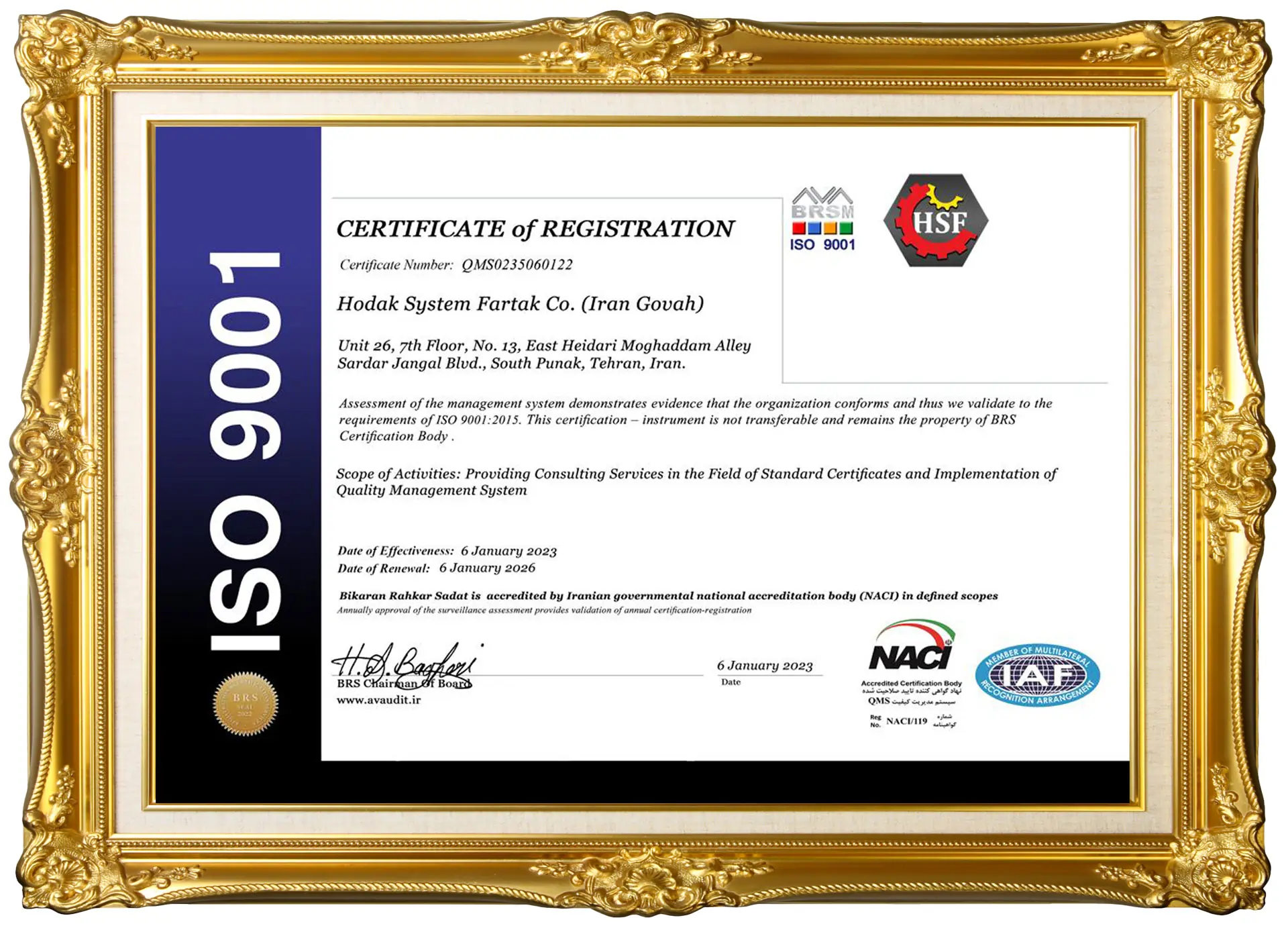National Accreditation Center of Iran (NACI)
The tasks and responsibilities of evaluating and accrediting conformity assessment agencies are given to ISIRI in light of the necessity for international interactions and upholding the interests of IR of Iran in trade competitions at the national or international levels. Iran Accreditation System (IAS) was founded in 1996 as a result of the realization that a center providing accreditation services needed to be independent and unbiased. IAS signed an MoU with the International Accreditation Forum (IAF) and joined this Forum during the joint conference of the IAF and ILAC in 2003. Eventually, IAS joined PAC and ILAC; however, the signature of MLA and MRA multilateral recognition agreements is necessary for IAS to be considered internationally eligible for the aforementioned forums.

National Accreditation Center of Iran
In 2010, IAS changed its name to National Accreditation Center of Iran (NACI), and since 2012, it has carried out its duties as an independent agency directly under the direction of ISIRI President.
NACI provides accreditation services for a wide range of conformity assessment activities, including testing and calibration laboratories, inspection bodies, certification bodies for management systems, product certification bodies, and proficiency testing providers. The aim of (NACI) is to ensure that these bodies are competent and operate in accordance with internationally recognized standards, such as ISO/IEC 17025, ISO/IEC 17020, ISO/IEC 17021, and ISO/IEC 17065.
NACI is a signatory to the Asia Pacific Laboratory Accreditation Cooperation (APLAC) Mutual Recognition Arrangement (MRA) for the accreditation of testing and calibration laboratories, and the International Laboratory Accreditation Cooperation (ILAC) MRA for the accreditation of testing and calibration laboratories, inspection bodies, and proficiency testing providers. These MRAs ensure that the reports and certificates issued by NACI-accredited bodies are recognized internationally.
NACI is also a member of the International Accreditation Forum (IAF), which is the global association of accreditation bodies. This membership provides NACI with the opportunity to participate in the development of international standards and guidelines for accreditation, and to collaborate with other accreditation bodies around the world.
Accreditation Process
The accreditation process carried out by NACI is based on internationally recognized standards, such as ISO/IEC 17011 and ISO/IEC 17025. The process typically involves the following steps:
- Application: The conformity assessment body submits an application for accreditation to (NACI).
- Assessment: NACI conducts an on-site assessment of the conformity assessment body to evaluate its compliance with the relevant standards and regulations.
- Report: NACI prepares a report based on the assessment, which outlines the findings and identifies any non-conformities.
- Corrective Action: The conformity assessment body is required to take corrective action to address any non-conformities identified in the assessment report.
- Decision: Based on the assessment report and any corrective action taken, NACI makes a decision on whether to grant accreditation to the conformity assessment body.
- Surveillance: Accredited conformity assessment bodies are subject to regular surveillance assessments by NACI to ensure that they continue to meet the relevant standards and regulations.
Accreditation Categories
NACI offers accreditation in several categories, including:
- Testing and Calibration Laboratories: These are laboratories that conduct testing, calibration, and measurement services.
- Inspection Bodies: These are organizations that provide inspection services for products, processes, and services.
- Certification Bodies: These are organizations that certify products, management systems, and personnel against relevant standards.
- Proficiency Testing Providers: These are organizations that provide proficiency testing services to laboratories.
Benefits of Accreditation
Accreditation by (NACI) provides several benefits, including:
- Increased credibility and recognition: Accreditation by NACI provides assurance to stakeholders that the services provided by a conformity assessment body are reliable and meet internationally recognized standards.
- Facilitation of trade: Accreditation reduces technical barriers to trade by providing assurance to stakeholders that products and services meet the required standards.
- Access to international markets: Accreditation by (NACI) facilitates access to international markets by providing recognition of conformity assessment services at the international level.
- Improvement of business performance: Accreditation provides an opportunity for conformity assessment bodies to improve their business performance by identifying areas for improvement and implementing best practices.
Conclusion
In conclusion, the National Accreditation Center of Iran plays a vital role in promoting the quality of products and services in Iran and enhancing the competitiveness of Iranian businesses in the global market. Its accreditation services are based on international standards and guidelines, and its accreditation is recognized by international organizations and institutions. Accreditation by NACI provides many benefits to CABs, including international recognition, improved competitiveness, enhanced customer confidence, improved management system, and access to international markets.


